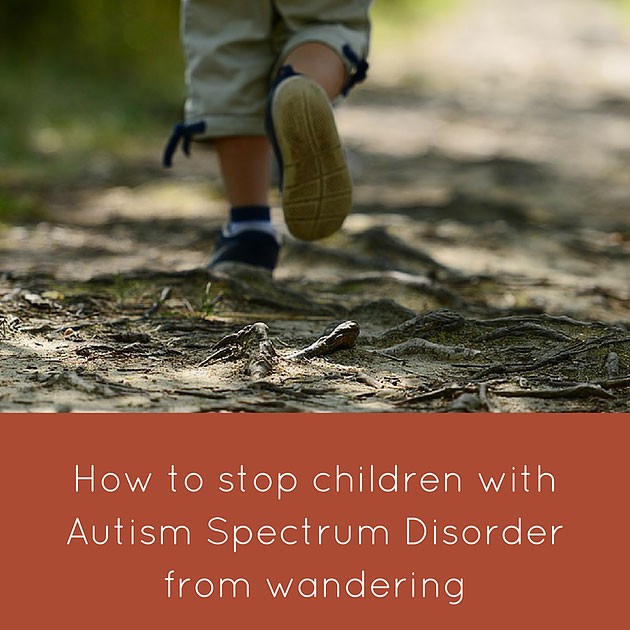Parents of children with autism spectrum disorder are often struggling to manage their child’s wandering and whereabouts. Nearly half of children with autism spectrum disorder try to wander or run off, causing tremendous concern to parents and guardians. However, understanding and monitoring your child’s wandering can help put a stop to this behavior.
Acknowledging the severity of wandering, Center for Disease Control (CDC) recognized wandering as a medical diagnosis code in 2011. This official recognition helps parents obtain insurance for safety equipment that can track their child’s whereabouts, such as tracking devices, locks, alarms, as well as to allow their child access to an Individualized Educational Program (IEP) in a school setting.
In this blog, we will discuss
-
Why children with ASD tend to wander
-
How you can stop your child from wandering or running off
Why do children with ASD wander?
Most children are prone to wandering. Wandering is typically goal-oriented. When children find something interesting happening around them, they tend to leave their parents and wander off, which can potentially lead them to dangerous or life threatening situations. Children tend to be fascinated by certain environments. This can either be a water body or heights, or even a mall. As a parent, you need to be completely aware of these point of attractions, so you can be cautious when you take your child out.
A report by Kennedy Krieger Institute called, ‘Occurrence and Family Impact of Elopement in Children with Autism Spectrum Disorders’ concludes that nearly half of children with ASD were reported to engage in elopement behavior, with a substantial number at risk for bodily harm. These results highlight the urgent need to develop interventions to reduce the risk of elopement, to support families coping with this issue and to train child care professionals, educators and first responders who are often involved when elopements occur.
Source: Occurrence and Family Impact of Elopement in Children with Autism Spectrum Disorders
10 ways to prevent children with ASD from Wandering
Security starts from home: Add more locks – protect your child from leaving the house. You cannot constantly keep an eye on your child, hence it is advisable to install affordable security systems or alarms to get your attention when someone leaves or enters the house.
Let friends and acquaintances know: Anybody who meets your child regularly needs to be made aware of the situation. Let your child’s teachers, neighbors, classmates, therapists etc. know that they need to be extra cautious when your child is with them.
Tracking devices to the rescue: There are a number of tracking devices in the market. Choose a suitable device that matches your child’s requirement and have her wear it every time she goes out.
Swim away from danger: It’s common for some children with autism spectrum disorder (ASD) to be drawn towards the water, which presents a danger of drowning. Provide swimming lessons for your child to avoid any unexpected dangers.
No time for anger, take plenty of time to explain:
Before you step out with your child, let him know what steps they will need to take in order to keep away from danger. Explain how they should behave and what you expect from them. When your child is going somewhere he shouldn’t, stop him gently and explain. If he still does not listen, distract him by taking him to another place.
Educate children on basic general knowledge: Make sure your children know about various aspects, environments or situations that can harm them. Educate your children on traffic rules and signals, teach them how to cross roads, etc.
Personal IDs: Use medical IDs for personal identification. These should include information about your child, address, and phone number. Create a few handouts if necessary – these handouts should contain your address and phone number.
Do not neglect factors that trigger wandering: In most cases, sensory overload can lead to wandering. Avoid places with excessive noise or crowds. Engage your child in conversation and fun activities, so they do not feel the need to wander.
Follow a strict sleep routine: In some children, poor sleep quality can be a cause for wandering. Plan a sleep schedule for your child and adhere to it strictly. Reduce the duration of daytime naps, or consider eliminating them altogether by sending them to recreational classes instead.
What methods have you applied to keep your child from wandering? Have they been successful? We would love to hear your stories. Do write to us in comments.


